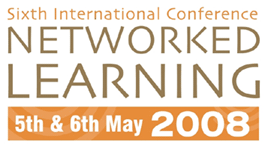

ArchWeb Forum: An Archaeology Oriented Web Environment
K. Kechagias, D. Politis
Informatics Dept., Aristotle Un. of Thessaloniki, kkecha@csd.auth.gr,
dpolitis@csd.auth.gr
Abstract
A quick search on Internet is indicative of the current situation regarding the field of Archaeology. To the best of our knowledge, there has been no organized attempt to create a coherent, well-conceived multimedia powered and at the same time multilingual archaeological forum. Such an attempt would foster in spread of archaeology beyond the professionals, in wider and amateur cycles.
We develop a forum (ArchWeb Forum), actually a web-environment, where
archaeologists and researchers can post articles about their scientific
work and also support and enhance them with multimedia material, such
as pictures, photographs, animations, video and audio content. Users can
comment the articles and setup discussions. The forum is designed to be
multilingual, in order to support the cultural diversity and the preservation
of national identity, and also to facilitate the publication process.
The translation process, which is part of every multilingual environment,
is supported by automate translation machines and translators. Simultaneously,
apart from the translations themselves, the first electronic multilingual
dictionary in the domain of archaeology is built. In the future, it can
continuously be updated and enriched, based on the flow of new articles
and terms.
The system combines elements from forum, blog and Content Management System
(CMS) technologies. This way it presents different aspects to different
user categories and it can perform functions that cross the boundaries
of the different technologies used.
The requirements lead to a mix of a Content Management System (CMS), an Internet Forum and a blog. Internet Forum offers simplicity, preserves author rights and welcomes users into the community. CMS can provide with the collaboration of experts required for the translation of rich multimedia content, while the powerful blog management and spread mechanisms would allow for content to become known through Internet directories. As our system should be used by a group of non IT experts, the Internet Forum architecture is used as the framework of the system.
The system was designed to be user group managed, with simple user (visitor), author, translator, moderator and administrator being the available groups. Each one is provided with a specialized view of the system together with a set of function panels and utilities.
For the first two roles, we adapt the Internet Forum model: threaded conversations between users which can be started only by archaeologists-authors (in order to ensure author rights). These threaded conversations are moderated by the moderators user group who can move threads from category to category, while editing/deleting abusing comments and banning users with unacceptable behaviour.
The translators have a somewhat more CMS oriented approach as they can collaborate on the translation of authored content, in order to present it to a language different from the original.
Finally, administrators face a CMS view of the system, which enables them to create/edit/move forums and subforums and to promote and denote users to the translator and administrator user roles.
The designed system out sketched above is the ArchWebForum, a hybrid web application that embraces the evolving new web technologies and uses them for the sake of archaeological science.
| About NLC |
2008 Conference Papers
| Conference Committee| Keynote
Speakers
| Papers from previous NL conferences |Research Seminars| Current Conference
| Sponsors | Contact
|
